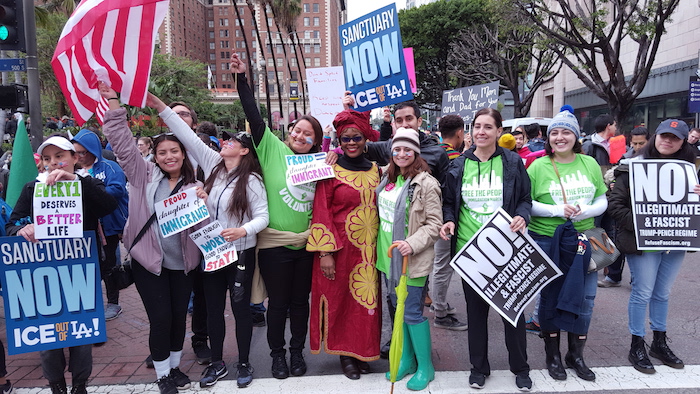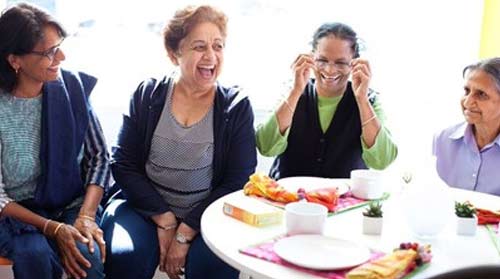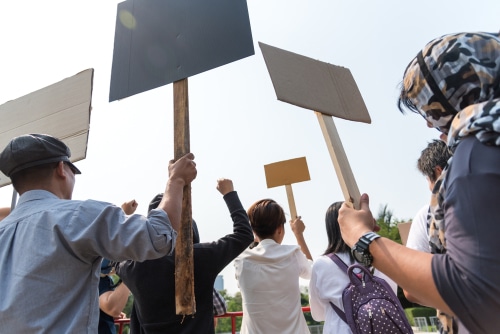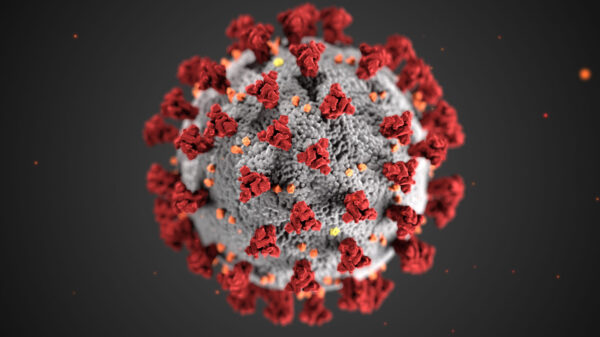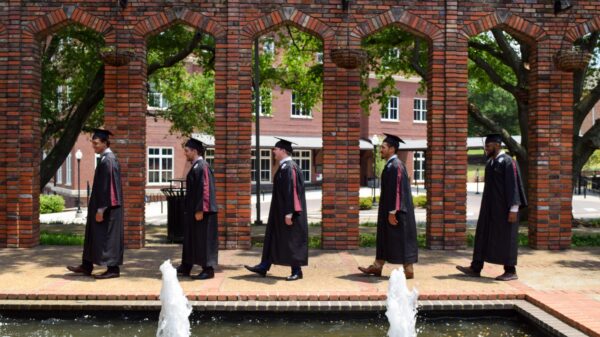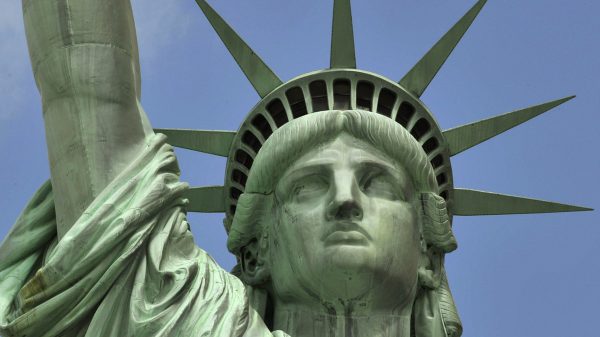
Beata Calińska Photo by Julian Sosa
Magazine, The Immigrant Experience
Polish filmmaker Beata Calińska shares her immigrant journey with The Immigrant Magazine expressing her views on the status of immigrants in today’s America. Co-director of Have no Fear a documentary recently selected for the NewFilmmakers Los Angeles Film Festival, she expresses her impassioned argument about why she tackles the sensitive often-polarizing issue of police brutality and its impact on American communities and families.
The Immigrant Magazine (TIM): Why did you leave Poland?
I always wanted to travel and experience different cultures, but actually never planned to leave Poland permanently. Prior to coming to the US, I lived abroad, in England and Cyprus, but that was just temporary, for the experience and academic reasons.
I originally came to the US just for a two-month research on my master’s dissertation and an internship at the Polish Consulate in Los Angeles, that later became a permanent position. I loved the mission of promoting Polish culture abroad but, as time passed, I became equally committed to learning about American culture and trying to make an impact on it as well.
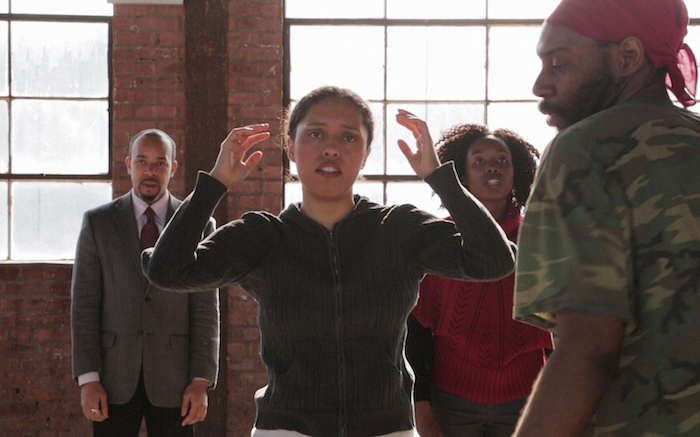
Have no Fear
TIM: What inspired you to become a filmmaker? Who inspires you?
I actually studied cultural anthropology and it was my sister, Justyna, who pushed me to go to film school as well. I always helped her with her short films and enjoyed it a lot. My sister made the first documentary I worked on. It was about a prison rehabilitation program, where inmates take care of farm animals, mainly sheep. Later on, we co-directed a short documentary together, based on my anthropological research called The Conductor. So my sister, for sure, inspired me.
Then there are many others that I was exposed to, during my studies, from “The Polish School of Documentary,” like Krzysztof Kieślowski and Kazimierz Karabasz. Actually, The Conductor was in a way a tribute to Karabasz’s Musicians. I’m also a big fan of Poland’s long tradition of non-fiction writing and authors like Ryszard Kapuściński, Mariusz Szczygieł, Jacek Hugo-Bader.
Recently, Lynne Sachs is someone who has been highly inspirational and whom I had the honor to work with. I’m definitely inspired by anyone challenging the form and methodology of storytelling, whether it’s fiction or nonfiction.
TIM: Your recently co-directed film got selected for the NewFilmmakers Los Angeles Film Festival. How did that come about and what does that mean to you?
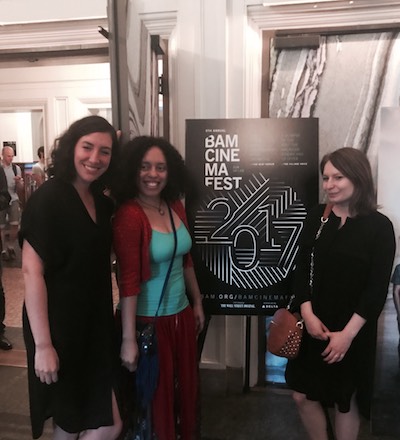
BAMcinemaFest_from the left Sarah Jacobson Wi-Moto Nyoka and Beata Calinska
From my beginnings in the US, I was trying to find the local documentary communities and, eventually, I joined the UnionDocs Collaborative Studio, a ten-month program in New York, where I partnered with my co-director, Sarah Jacobson, and together we worked with Adia Whitaker to tell the story of her dance group and movement.
The film, Have no Fear, has been part of a few festivals already – we premiered in Switzerland and our US Premiere was held at BAMcinemaFest. The film continues its festival run and I’m honored to now be a part of the NewFilmmakers Los Angeles Film Festival. I’m very excited as I’m currently based in LA and looking to get more involved with the documentary community here, as I did in New York.
TIM: As a documentary filmmaker from Poland, you have stated how proud you are to be a part of the American society and presenting a film that explores American social issues. Do you think that Americans understand immigrants and their impact on American society and culture?
I think all Americans understand immigrants built this country. Unfortunately, the current political climate has brought out the worst in some people and made many forget the values the country was founded on. Having said that, living in cities like LA and New York, my experience has been very positive. I believe most Americans uphold these values, at least in cities like these, where they’re interacting with immigrants every day and their impact is so palpable.
Most Americans I met made me feel right at home. It was particularly touching when I met Adia Whitaker and ASE Dance Theatre Collective. Being a foreigner and trying to tell a very American story, it was incredibly important to feel welcomed and accepted. During another production at UnionDocs, I was at an LGBTQ affirming church. After we finished filming, the Minister put her hands above my head and in her prayer welcomed me into American society and into this land. It was a very special moment for me.
Something that has really stood out in my experience in the US, it’s learning about the many different immigrant stories, which are always so inspiring and moving, and I think these are the type of stories Americans need to be reminded of nowadays.
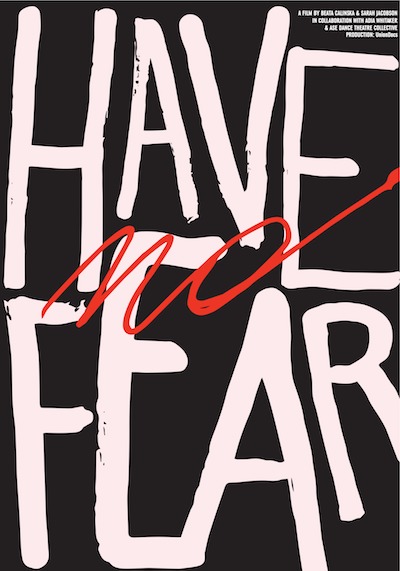 TIM: What is the story behind “Have no Fear” and what message do you want to share.
TIM: What is the story behind “Have no Fear” and what message do you want to share.
The story focuses on the ASE Dance Theatre Collective and particularly, its founder, Adia Whitaker. In the film, her performance ensemble prepares a piece to elevate the conversation around police brutality in the US, while she juggles her responsibilities as a mother to educate her children and prepare them for the reality they will face in American society.
Her message and the message of the film is to try to keep the conversation alive and find new ways to engage people, open up the dialogue about, not just police brutality, but racial tensions in America and social dynamics.
TIM: Why is “Have no Fear” an important story to tell?
The issues of social injustice and police brutality are prevalent every day. But this story is not important just because it speaks about one of the most critical issues in America today. It was important to me because it was also opening up a window into how the problem affects people in their everyday lives, especially motherhood. I think it brings another element to the conversation and allows outsiders to fully understand the scope of it.
TIM: You seem well on your way to breaking barriers and making headway in the industry what do you think it takes to break through in Hollywood?
Above all, I follow my passion and work very hard. It may sound cliché, but you have to be passionate if you want others to be passionate about something too. Work ethic is extremely important as well. You want people to feel like they can rely on you.
TIM: Has your time in the USA been all what you had hoped for?
Being an immigrant has its own challenges but, again, I must say I was lucky to quickly make strides in my two adopted cities, Los Angeles and New York. From the very beginning, I was surrounded by friendly and inspiring people.
At the same time, every day I find different challenges but also gain a deeper understanding of American society. Despite all the reservations one might have about this country, at its core it has elements that I think appeal to everyone. For example, something that really stood out for me when I first arrived, this is the only place where I could share my dreams openly and, regardless of how wild they were, be taken seriously. There’s something very special about that.
I also found an invaluable support here, having met my husband, an immigrant himself too, who encourages me on every step I make in my new home country. It’s been a great journey but I still hope to push it even further.
Have no Fear | Trailer from Beata Calinska on Vimeo.



